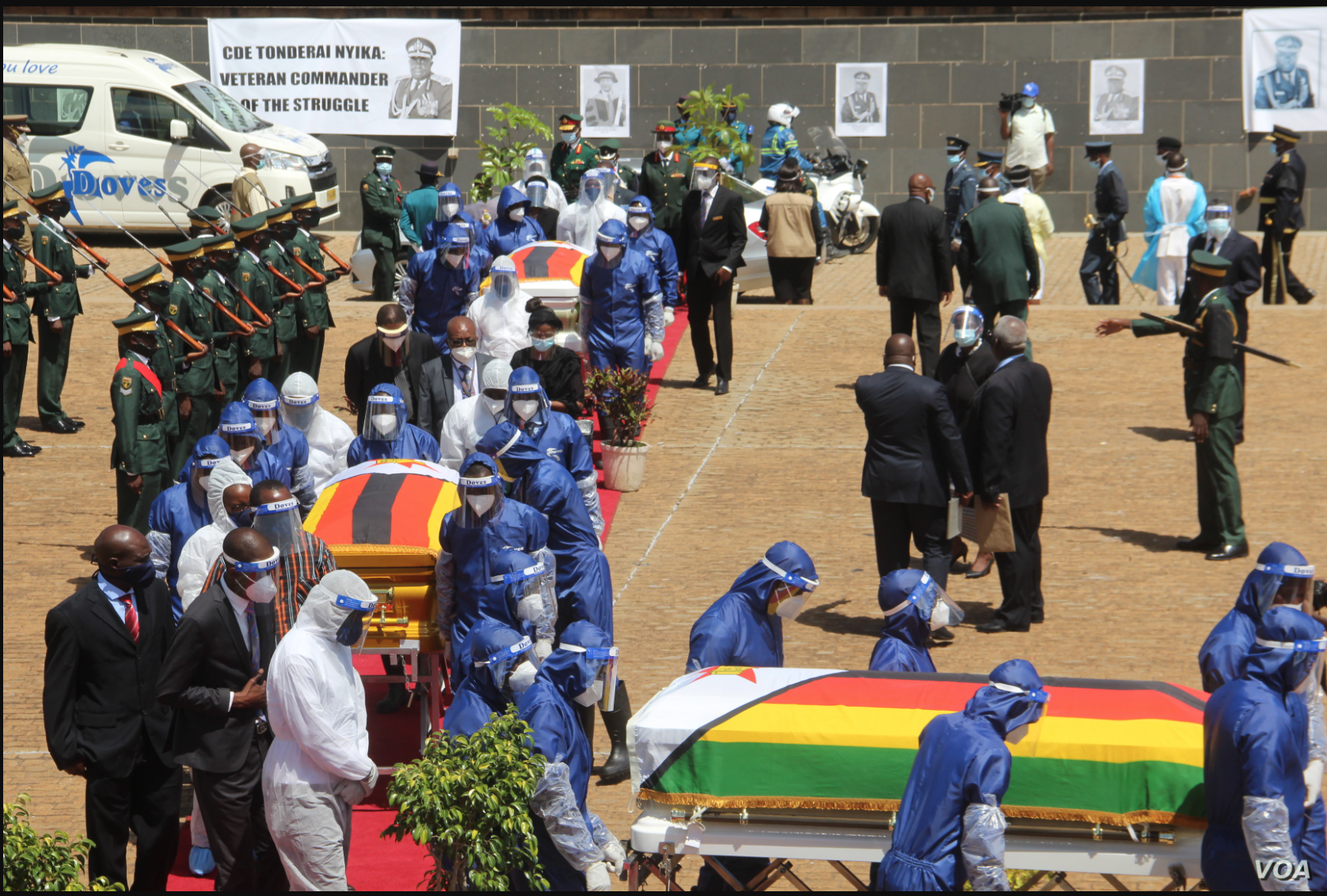COVID-19 global reality check, from China, South Africa to Cuba

The Chinese government wants the lockdown from COVID-19 to be remembered not as a disaster but as a victory, but people who lost their loved ones because of the government’s initial cover-up are feeling angry and turning to USAGM networks to speak freely about their frustrations and demand accountability from their government. Voice of America talked to three people to tell their story in a video that generated 81,000 views on Twitter.

Facing increasing COVID-19 cases, the Chinese government is asking citizens to stay put for the upcoming Chinese Lunar New Year, but some Chinese citizens are telling VOA how they really feel. One resident told VOA she believes the government is hiding information and there is no way to find out the real situation of the virus in China.
And from Phnom Penh, VOA Khmer reported that some people are hesitant to get the Chinese vaccine, questioning its safety because it is not yet approved by the World Health Organization.
From India, VOA reported on the country’s unexpected “vaccine diplomacy” and the move to donate millions of the locally-produced AstraZeneca vaccines to neighboring South Asian nations. “It’s about image and soft power. India wants to be recognized as a global leader,” Sreeram Chaulia, Dean at the Jindal School of International Affairs, told VOA.
Radio Free Asia’s-affiliated BenarNews reported that Bangladesh received its first shipment of coronavirus vaccines – a gift from the Indian government – after Chinese state-owned Sinovac withdrew from trials in the country late last year following Dhaka’s refusal to co-fund its Phase 3 trials. Meanwhile, Philippine drug regulators cleared a U.S.-made COVID-19 vaccine for emergency use, the first such approval in a country among the worst hit by the virus in Asia.
From South Africa, VOA reported that a team of African Union officials announced they have succeeded in securing 270 million doses of COVID-19 vaccines for the continent and plan to distribute them equitably as they work towards their goal of vaccinating 1.5 billion people (or 70 percent) on the continent – the rough threshold to achieve herd immunity. The India-manufactured vaccines will come from Pfizer and AstraZeneca.
VOA also reported that Zimbabwe’s government-held burials for two Cabinet ministers and a former prison official who died from COVID-19. The Cabinet now has lost four ministers to the coronavirus. Public health experts blame Zimbabwe’s collapsed healthcare system.
The Middle East Broadcasting Networks’ Alhurra Investigates delved into the strategies for distributing the COVID-19 vaccine in the Middle East and North Africa region and compared how wealthy countries in the Gulf are already distributing it to their citizens, while nations that have economic struggles need international assistance to help them secure the vaccine.
From Russia, Radio Free Europe/Radio Liberty covered the beginning of the next stage of the mass vaccination campaign using Russia’s Sputnik V, now extended to the general public – beyond just those in special professions, such as medical workers and teachers. From Turkmenistan, RFE/RL reported that the country became the first in Central Asia to approve the use of Sputnik V, even as the government continues to maintain that it is coronavirus-free.
Radio TV Martí reported that Mexican President Andrés Manuel López Obrador has COVID-19 and that Mexicans will soon receive the Russian Sputnik V vaccine.
Residents of Pinar del Río at the western end of the island of Cuba told Radio TV Martí that the coronavirus situation on the island is “a nightmare that seems to have no end” and they believe that the measures to contain the advance of the disease are not having the desired effect.
